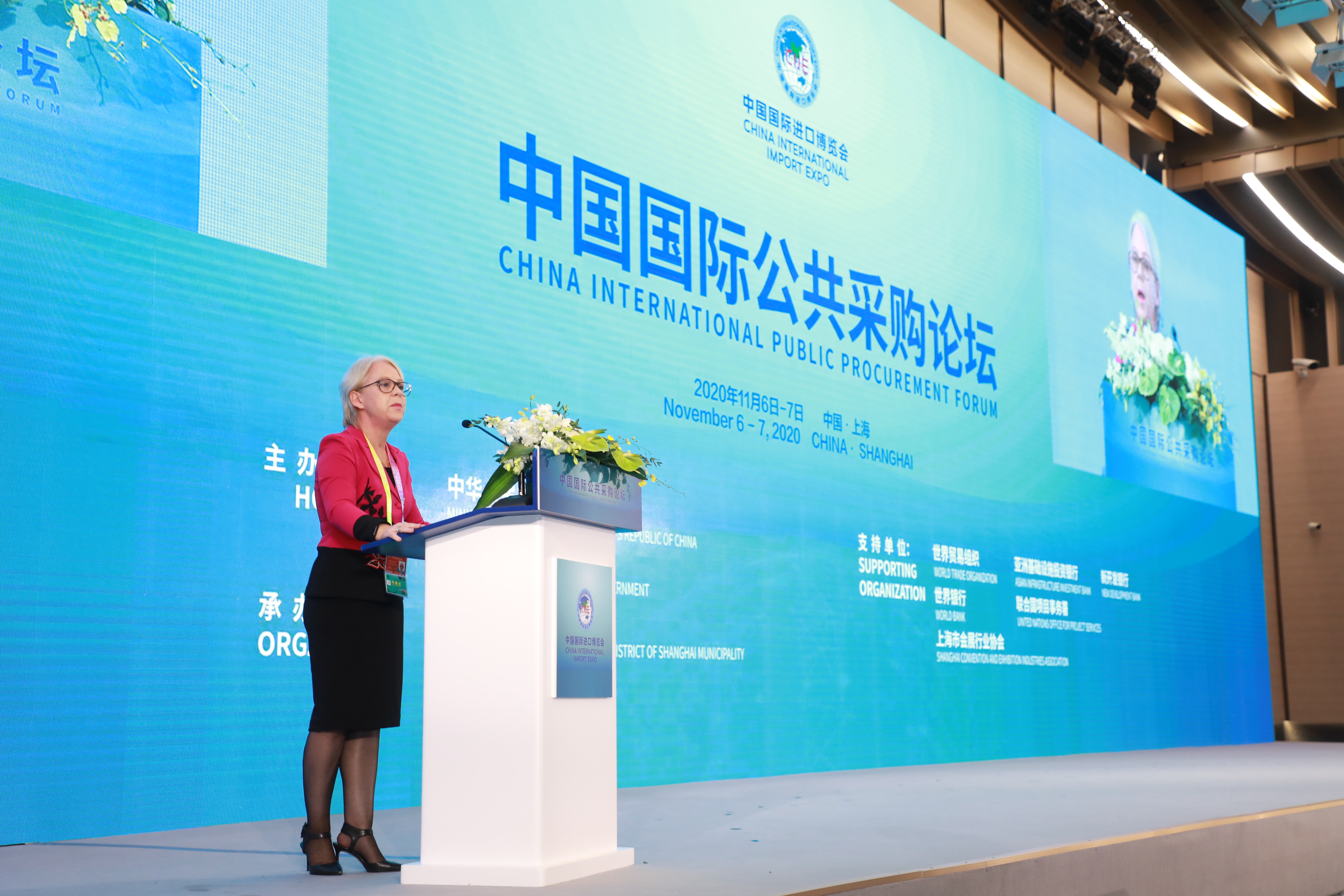China International Import Expo (CIIE) 2020
China International Public Procurement Forum
6 November 2020
Distinguished Vice Minister Xu Hongcai,
Distinguished Executive Vice Major Chen Yi,
Distinguished delegates, dear colleagues,
Good Afternoon!
On behalf of UNDP China, it’s my pleasure to join the Beijing 2020 China International Public Procurement Forum. It’s great to see so many procurement experts and potential suppliers here today.
We’re gathered at a critical moment, with the world facing severe logistical disruptions, brought by the unprecedented crisis of COVID-19.
While procurement is not normally a mainstay of UNDP’s work, it is a critical means to fulfilling our mandate of achieving the Sustainable Development Goals – to protect people and the planet we depend on. From buying health commodities, to sourcing energy systems and consultancy services, procurement enables us to carry out our projects.
2020 has been a challenging year. The impact of COVID19 on production and supply chains has demonstrated the crucial importance of efficient procurement, on a global scale.
When China was the only market open, UNDP relied on Chinese suppliers for PPE and medical equipment, to support emergency responses around the world. We’ve sourced supplies worth over US$ 49 million for 70 countries so far – with procurement volume rising 46% from last year.
Despite these successes, our procurement experience also reveals challenges to be tackled. I’d like to highlight four ways we can work together towards stronger supply chains in future:
Firstly, this crisis has tested our emergency capacity. While we acted swiftly in sourcing supplies, we also found some products lack internationally-recognized quality certificates. This can cause delays, or even prevent exports to other countries. To pass the quality assurance process, it is vital for companies to label your products with key internationally-recognized certificates, such as a WHO certificate, or other international accreditation. This can boost efficiency greatly, getting urgent supplies to those who need them.
Secondly, we must ensure the procurement process aligns with principles of fairness, integrity, transparency and competitiveness. UNDP adheres to strict due diligence procedures, and only enters into contracts with companies that have been vetted to meet our qualification criteria. Sub-contracting – when not clearly declared in the bidding process – does not meet UNDP rules, as it creates potential challenges in quality control and accountability. This was an obstacle we occasionally faced in procuring medical supplies, and some contracts had to be canceled for non-compliance.
Thirdly, procuring medical equipment has also shown how complex just one sector can be: multiple suppliers, different quality standards, and different statutes in government certifications. For faster speed and bigger volumes, a comprehensive platform - linking all UN entities with the right supply chains and logistics – would be enormously helpful, and we invite the government to consider establishing such a system. This would streamline our sourcing, while benefiting domestic suppliers, by enabling procurement at greater scale.
Finally, our recovery must lead to a green future - including sustainable procurement. At UNDP, we prioritize products and services that are as sustainable as possible, with the lowest environmental footprint and most positive social impact. In this regard, we look for suppliers qualified for environmental standards, such as ISO 14001, and those reducing the resources they use, along with saving energy or recycling.
This forum is a meaningful step towards more effective, eco-friendly and inclusive procurement in our recovery. I commend China's Ministry of Finance (MOF) and the Shanghai Municipal Government for organising it, with support from the Qingpu District Government and my colleagues at UNOPS.
In the post-pandemic world, we need a more united, resilient global economy – and sustainable procurement has a major part to play. UNDP China will continue to ‘buy for a better world,’ for a quicker global recovery, as well as the SDGs’ mission to end poverty, reduce inequality and safeguard our planet.
Thank you all and I wish this forum every success. Zhù dà jiā shēn tĭ jiàn kāng, wàn shì rú yì! Xiè Xiè!

 Locations
Locations




